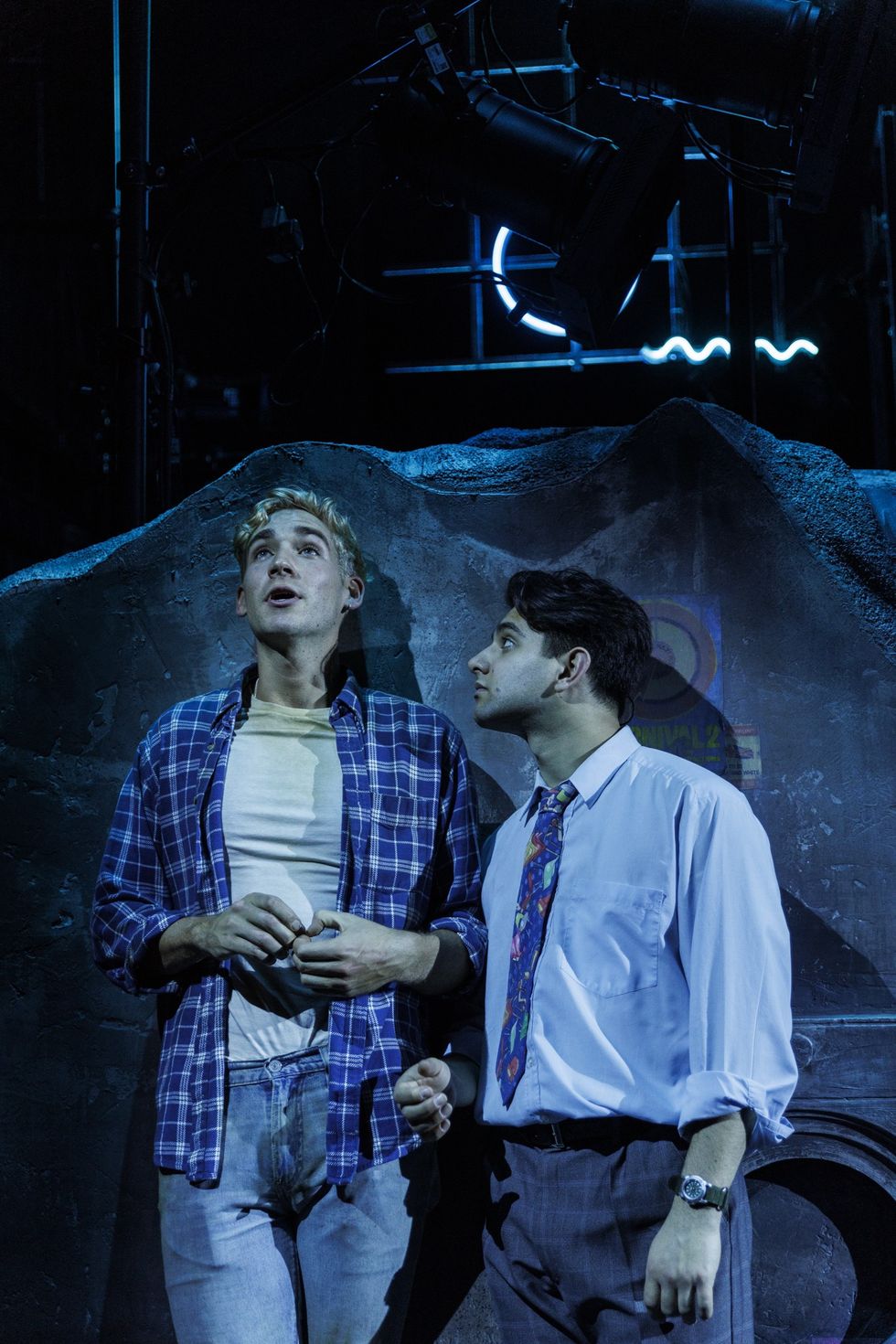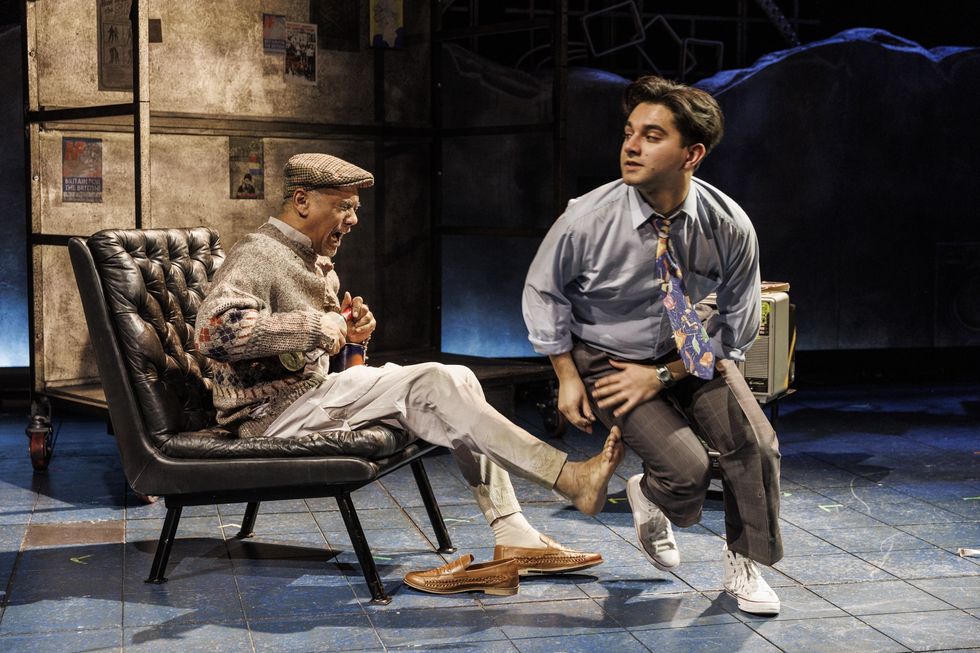THE 2019 stage adaptation of writer Hanif Kureishi’s iconic 1985 film, My Beautiful Laundrette, was so successful that it returned for another UK tour, beginning at Curve Theatre in Leicester, where it was originally produced.
Set against a backdrop of nationalism, racial tensions and political turmoil of the 1980s, the groundbreaking story revolves around a British Asian named Omar, who teams up with a racist gang member to transform a launderette, sparking an unlikely romance.
Lucca Chadwick-Patel plays Omar in the new production and has received justified acclaim for his performance.
Eastern Eye caught up with the British talent to discuss the show currently on a UK tour, why it’s still relevant today, acting and theatre.
How does it feel playing the lead role in such an iconic story?
It really is an absolute privilege – Hanif’s work speaks for itself. It’s such fun. His writing is honest and gives you so much scope to explore and play such unapologetically real people. The play is a vital piece and a joy to be a part of, as it speaks not only for our past, but also our current political climate.
How aware were you of the story before taking on this role?
I have to say I wasn’t aware of it at all (criminal, I know). When I had the audition, my dad told me some bits about it. Then I went back and watched the original film, which I just fell in love with. The play captures so much of that original framework and builds on it for the stage, putting the characters and story at the forefront of the action.
How would you describe your character?
I would describe Omar as driven, cunning, sensitive, playful and charming. I could go on and on. Throughout the play, he goes through a wide range of emotions and states. He’s very complex, which is so much fun to play.
What is the biggest challenge of playing this role?
I would say the biggest challenge with Omar is effectively showing his journey and growth throughout the play – he really does go on a big journey that changes his life completely. I don’t want to give too much away, so you’ll have to come and see the play if you want more spoilers!

What is your own favourite moment in the play?
There are many brilliant moments in the play, but my favourite bit would have to be the club scene for numerous reasons. It’s the first time Omar and Johnny both let their guard down and actually connect properly, so I love it for that.
Does the play having had a successful run previously put pressure on you?
This is a really interesting question. The previous production of the play was a beautiful framework for us to begin with, but this new version has been restaged and revised. Although we had a brilliant starting point with the film and the previous production, it feels like we’re creating a new piece at the same time and that’s really cool. So, actually no, I don’t. The past versions were all great and this version will be a new chapter in the journey of this brilliant story.
Do you feel the themes of this play are still relevant today?
This play is all the more relevant today – so many of the experiences of Omar and the other characters in the play parallel the news stories we read regularly. The themes addressed in the piece remain as vital today as they were in 1985. Personally, it resonates with my upbringing and reflects the state of our country and its politics in the current climate. I believe this play serves as a crucial tool for education and raising awareness.
Has playing this character taught you anything new?
This has been the most complex and intense role I’ve played in my career, so every day is a learning experience and I’m loving every second of it. We have an amazing room and team, so I feel comfortable to play and try new things which is important when you are trying to create good work. It’s a joy in every way!
What, according to you, makes for great theatre?
Great theatre can come in so many forms. I’m a proper theatre nerd and have been since I was a kid. I love the escapism and shared experience. I love a good musical – there’s nothing quite like a bit of acting through song. In my eyes, good theatre challenges you and offers questions and things to take away. My favourite thing is leaving the theatre and dissecting it on the journey home – that’s when I know I’ve seen something brilliant!

What inspires you as an actor?
One of my favourite things is to watch theatre and come away feeling inspired by the wonderful actors we have in our industry. But one of my main inspirations and aim is to improve Asian representation in the arts. When I was younger, there were so few people who looked like me on our stages. I feel so privileged to get to do my job and the thought that it could inspire one person along the way means the world to me.
Why should we all come and watch My Beautiful Launderette?
You should catch our version of My Beautiful Laundrette primarily for the writing, which is fantastic. The production has shaped up to be really exciting and, most important, I believe it is a vital piece of theatre, not just for then, but for today’s audiences too.
My Beautiful Laundrette will be staged at Queen’s Theatre, Hornchurch (until next Saturday, 9); Theatre Royal, Wakefield (March 11-14); The Lowry, Salford (March 19-23); Liverpool Playhouse (March 26-31); and Blackpool Grand Theatre (April 2-6). www.nationaltheatre.org.uk




